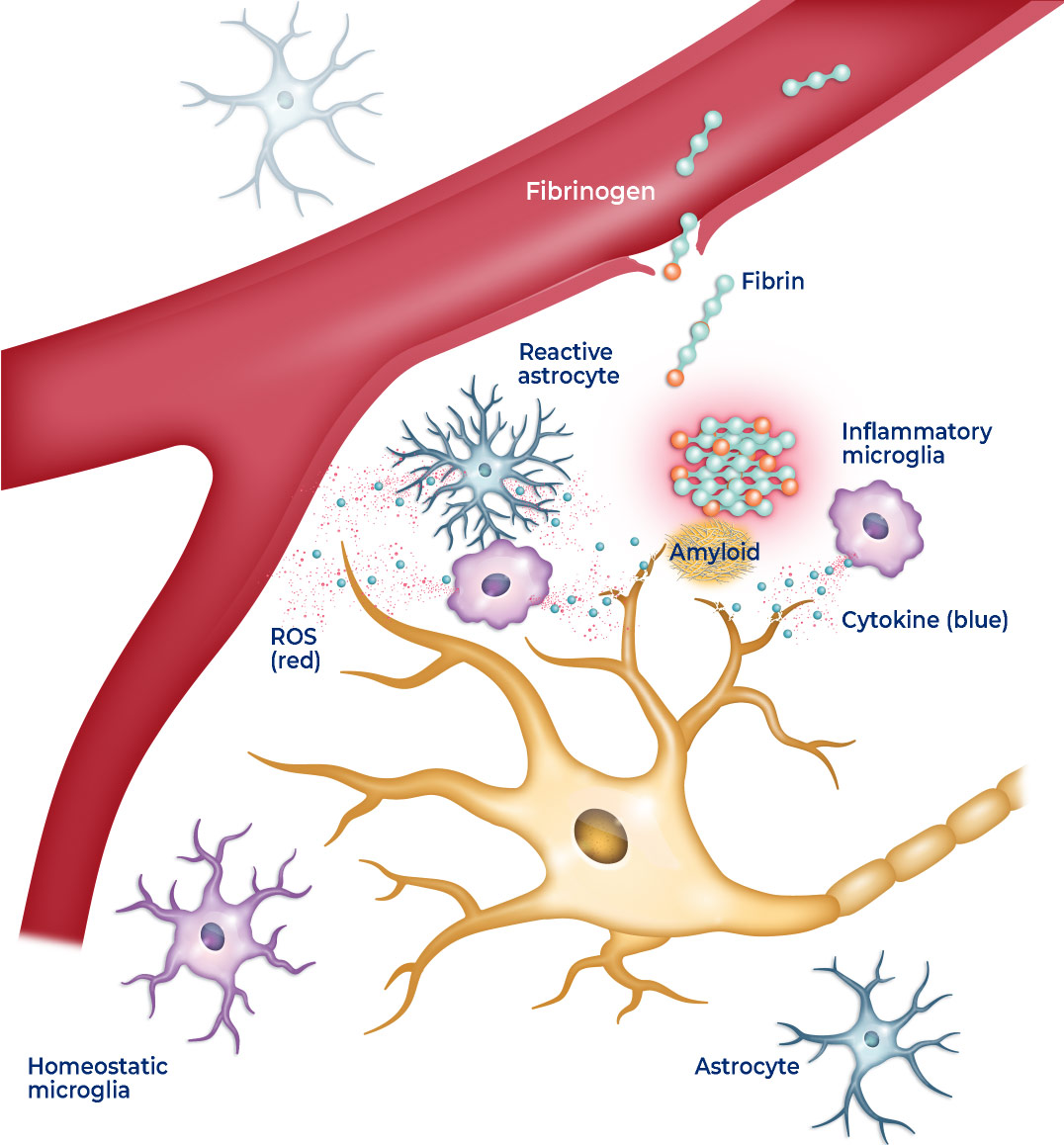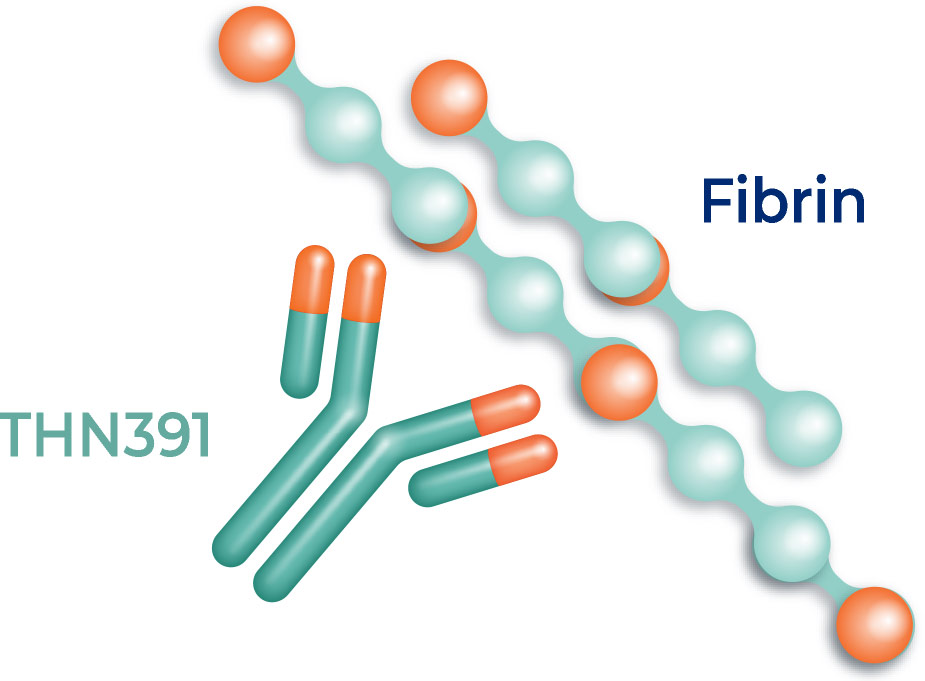Science
Overview
Vascular dysfunction, caused by factors such as aging, genetic risk and diseases, including hypertension and diabetes, leads to the toxic accumulation of fibrin deposits outside of blood vessels, which sparks chronic innate immune cell activation.
This unremitting, fibrin-induced inflammation caused by a lack of vascular integrity results in neuronal damage and is believed to be a central mechanism underlying neurodegeneration in the brain and retina.
Based on the work of world-renowned neurovascular & brain immunology expert and Therini Bio scientific founder Dr. Katerina Akassoglou, the Director of the Center for Neurovascular Brain Immunology and Professor of Neurology at the University of California, San Francisco and Gladstone Institutes, we are developing potentially first-in-class, fibrin-targeting immunotherapies for the treatment of severe retinal and neurological diseases driven by vascular dysfunction.


Our novel approach is designed to selectively block the devastating effects of neuroinflammation triggered by fibrin without impacting coagulation or protective innate immunity.
Therini’s lead candidate, THN391, a selective, monoclonal antibody, targets the “inflammatory epitope” on fibrin deposits outside of blood vessels and prevents the activation of microglia and macrophages, which cause destructive neuroinflammation leading to severe diseases, such as Alzheimer’s disease and Diabetic Macular Edema, Therini’s initial clinical indications.
Pipeline
Publications
A Novel Anti-Fibrin Antibody to Treat Neurodegenerative Ocular Diseases
Kantor AB, Stavenhagen J
ARVO. 2024 May
Translation Studies and Clinical Development of THN391, a Novel Anti-Fibrin Antibody for the Treatment of Dementia
Kantor AB, Rickert M, Cheng H, Flannagan K, Salgotra V, Suppahia A, Ryu JK, Widboom P, Warfield J, Akassoglou K, Stavenhagen J
CTAD. 2023 Oct
Fibrin-Targeting Immunotherapy for Dementia
Kantor AB, Akassoglou K, Stavenhagen JB
J Prev Alz Dis. 2023 Oct; 10, 647–660
Coagulation and Immunity: Caught in the Fibrin Web
Sozmen EG, Akassoglou K.
Immunity. 2021 Nov 9;54(11):2439-2441.
The Immunology of Blood: Connecting the Dots at the Neurovascular Interface
Akassoglou K.
Nat Immunol. 2020 Jul;21(7):710-712.
Fibrinogen Induces Microglia-Mediated Spine Elimination and Cognitive Impairment in an Alzheimer’s Disease Model
Merlini M, Rafalski VA, Rios Coronado PE, Gill TM, Ellisman M, Muthukumar G, Subramanian KS, Ryu JK, Syme CA, Davalos D, Seeley WW, Mucke L, Nelson RB, Akassoglou K.
Neuron. 2019 Mar 20;101(6):1099-1108.
Fibrin-Targeting Immunotherapy Protects Against Neuroinflammation and Neurodegeneration
Ryu JK, Rafalski VA, Meyer-Franke A, Adams RA, Poda SB, Rios Coronado PE, Pedersen LØ, Menon V, Baeten KM, Sikorski SL, Bedard C, Hanspers K, Bardehle S, Mendiola AS, Davalos D, Machado MR, Chan JP, Plastira I, Petersen MA, Pfaff SJ, Ang KK, Hallenbeck KK, Syme C, Hakozaki H, Ellisman MH, Swanson RA, Zamvil SS, Arkin MR, Zorn SH, Pico AR, Mucke L, Freedman SB, Stavenhagen JB, Nelson RB, Akassoglou K.
Nat Immunol. 2018 Nov;19(11):1212-1223.
Fibrinogen in Neurological Diseases: Mechanisms, Imaging and Therapeutics
Petersen MA, Ryu JK, Akassoglou K. Fibrinogen in neurological diseases: mechanisms, imaging, and therapeutics.
Nat Rev Neurosci. 2018, 19(5):283-301.
Fibrinogen as a Key Regulator of Inflammation in Disease
Davalos D, Akassoglou K. Fibrinogen as a key regulator of inflammation in disease.
Semin Immunopathol. 2012. 34:43-62.